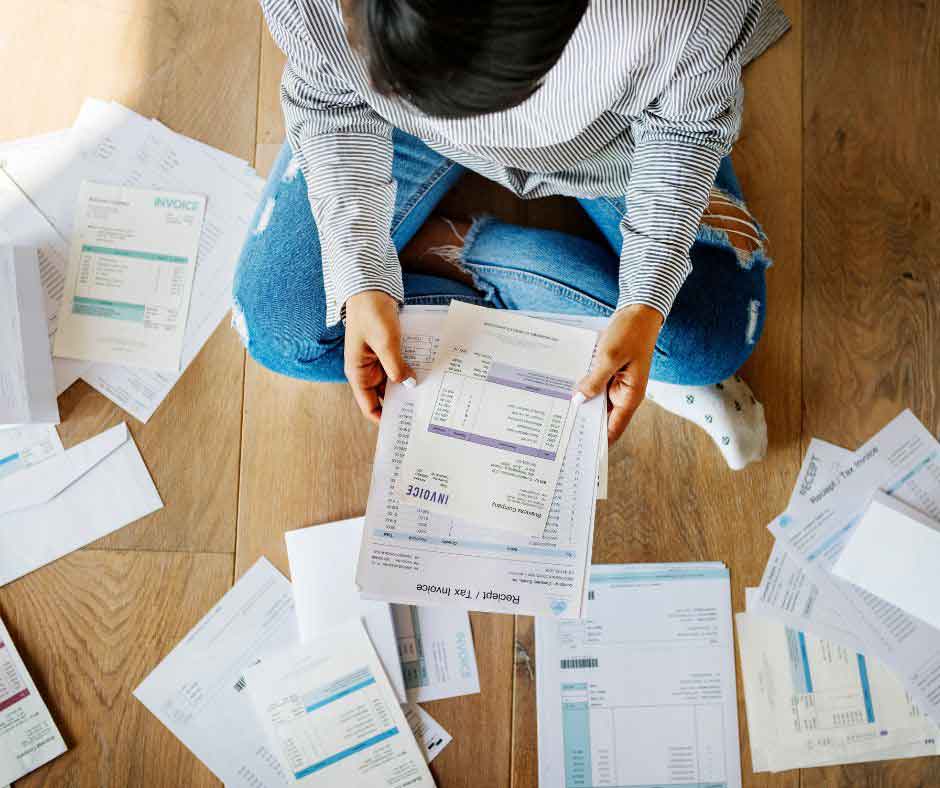Self-Employed Debt
Being your own boss can have many advantages, but it also comes with significant pressures – including the risk of mounting debts. At MoneyPlus, we are here to provide self-employed debt help when you need it most.
Debts can be difficult to deal with – even more so if you’re self-employed. You might find yourself with mounting bills connected to your business at the same time as having personal debts and household bills to keep up with. Knowing how best to manage your finances in these circumstances can be difficult.
At MoneyPlus, we understand the financial pressures facing self-employed people and can offer advice and support to help you. We’re here to ensure you know your options and can find the best way to take control of your debts.


Types of self-employed debt
There are various types of debt that could impact you if you’re self-employed, ranging from business loans and tax debts to credit cards and personal loans. Below, we explore some of the most common debts in more detail.
1. Business loan debt
If you’re running a business, you might need to take out loans to fund expansion, invest in new equipment or simply manage cash flow and continue operating. This may take the form of credit lines, business loans or equipment financing, for example.
2. Trade debt
This refers to money you owe to suppliers of goods or services provided on credit. It can include hire costs, leasing agreements and the financing of goods or services.
3. Invoice debt
Invoice debt happens when clients or customers don’t settle their invoices within the agreed terms. It can put major pressure on your cash flow.
4. Tax debt
If you fail to meet your tax obligations, for example not paying enough corporate income tax, payroll taxes, VAT, or tax on your trading profits, you can face significant financial penalties and legal consequences.
Which self-employed debts should I pay off first?
Deciding which self-employed debts to tackle first can be difficult. It helps to break down the consequences of non-payment for the specific types of debt you have.
Here are some examples of self-employed debts and what might happen if you don’t keep up with repayments:
- Equipment leases – repossession
- Mortgage on a business premises – losing the premises
- Tax, VAT or National Insurance – a visit from bailiffs, bankruptcy or even imprisonment
- Electricity, gas and water bills – disconnection


What can I do if I have self-employed debts?
If you have self-employed debts, it’s crucial that you know exactly how much you owe and to whom. If you’re struggling to get control of the situation and feel you need information and support, you can speak to an expert debt advisor. They will be able to help you understand your financial situation and present your options to you so that you can work out the best way of regaining control of your finances.
What happens if I can’t repay self-employed debts?
If you can’t keep up with your debt obligations, creditors will begin taking repayment action to try to get the money you owe them. This may include adding any charges or late fees specified in your agreements with them.
If creditors aren’t successful in getting you to pay, they might scale up their efforts or involve a debt collection agency. These agencies can contact you through a number of means, including emails, phone calls and in some cases, visits by collection agents.

Can County Court proceedings be taken against me for self-employed debt?
Eventually, non-payment might lead to creditors filing a County Court Judgement (CCJ) against you. If this happens, you will be ordered by law to pay back the money you owe, and if you can’t do this, you risk your business assets and property being repossessed by County Court bailiffs. You might also be made to liquidate your business to help repay the money.
What if I fall behind with tax debts?
Tax debts should always be considered priority debts. HMRC can instigate debt recovery efforts more quickly than standard debt recovery, and in many cases, there’s no need for a court order. If you don’t pay your tax debts, you could find your business assets and goods seized. There is also the risk of getting a CCJ against you and you could even be sent to prison.
So, if you find yourself falling behind with tax payments, make sure to contact HMRC as soon as possible to explain your situation. It will review your finances to determine whether you have the means to repay the money owed. If you don’t, HMRC might enter into a repayment agreement with you.
Be sure to check that HMRC has the correct details for you and is asking for the right amount. In some cases, tax bills are overestimated, so this is something you should rule out.
It’s important to be aware that HMRC can start bankruptcy proceedings against you if you owe more than £750.
What solutions are there for self-employed debts?
There are various possible solutions available to you if you’re struggling with self-employed debts. The best option for you will depend on various factors, such as how much you owe, the income you have available to help you meet repayments, where in the UK you are based, and what sort of business you run. For example, the options available to sole traders may differ to those available to the owners of limited companies.
At MoneyPlus, we can guide you through the options, from Bankruptcy to self-employed Individual Voluntary Arrangements (IVAs).
Are you struggling with self-employed debt?
Dealing with unmanageable self-employed debt can be very stressful. However, there are always solutions available. If you want to know more about the self-employed debt services we offer, don’t hesitate to get in touch with our specialists today.
You can be sure we’ll take the time to fully understand your financial situation and offer the guidance you need to help you regain control of your debt.

To discover more about how to manage your debt and to receive free debt advice, you can visit www.moneyhelper.org.uk.
